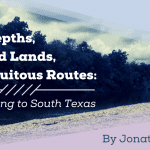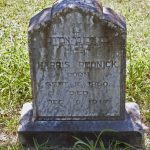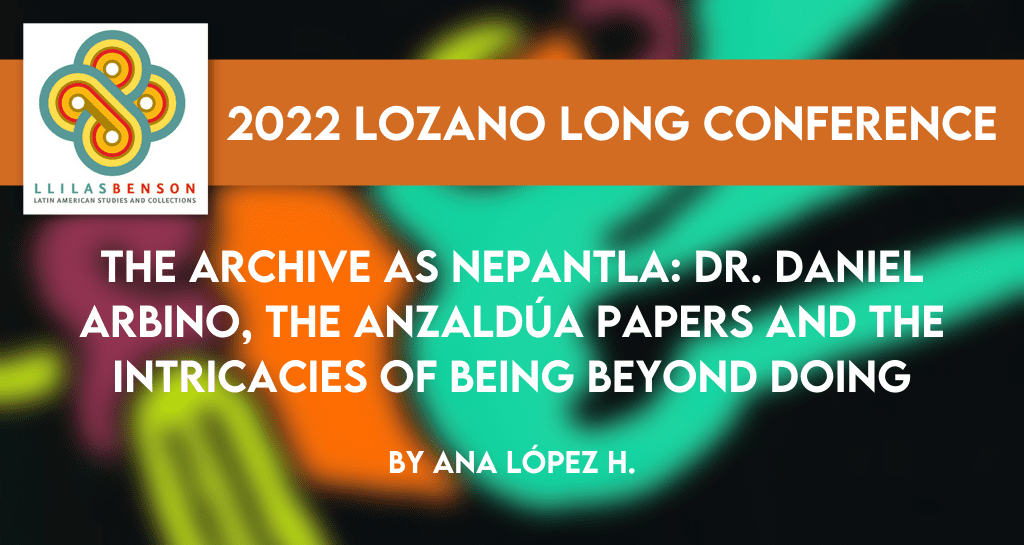
By Ana López H.
In honor of the centennial of the Nettie Lee Benson Latin American Collection, the 2022 Lozano Long Conference focuses on archives with Latin American perspectives in order to better visualize the ethical and political implications of archival practices globally. The conference was held in February 2022 and the videos of all the presentation will be available soon. Thinking archivally in a time of COVID-19 has also given us an unexpected opportunity to re-imagine the international academic conference. This Not Even Past publication joins those by other graduate students at the University of Texas at Austin. The series as a whole is designed to engage with the work of individual speakers as well as to present valuable resources that will supplement the conference’s recorded presentations. This new conference model, which will make online resources freely and permanently available, seeks to reach audiences beyond conference attendees in the hopes of decolonizing and democratizing access to the production of knowledge. The conference recordings and connected articles can be found here.
En el marco del homenaje al centenario de la Nettie Lee Benson Latin American Collection, la Conferencia Lozano Long 2022 propició un espacio de reflexión sobre archivos latinoamericanos desde un pensamiento latinoamericano con el propósito de entender y conocer las contribuciones de la región a las prácticas archivísticas globales, así como las responsabilidades éticas y políticas que esto implica. Pensar en términos de archivística en tiempos de COVID-19 también nos brindó la imprevista oportunidad de re-imaginar la forma en la que se llevan a cabo conferencias académicas internacionales. Como parte de esta propuesta, esta publicación de Not Even Past se junta a las otras de la serie escritas por estudiantes de posgrado en la Universidad de Texas en Austin. En ellas los estudiantes resaltan el trabajo de las y los panelistas invitados a la conferencia con el objetivo de socializar el material y así descolonizar y democratizar el acceso a la producción de conocimiento. La conferencia tuvo lugar en febrero de 2022 pero todas las presentaciones, así como las grabaciones de los paneles están archivados en YouTube de forma permanente y pronto estarán disponibles las traducciones al inglés y español respectivamente. Las grabaciones de la conferencia y los artículos relacionados se pueden encontrar aquí.
Although I have spent two years in Austin, I have not had the chance to visit Gloria Anzaldúa’s personal archive. Honestly, I did not come here looking for her. Instead, she found me along the way. Anzaldúa’s work has oriented me through my changing research project and in an uncertain world convulsed by the COVID crisis. As pandemic-induced isolation forced us to examine our inner wounds, Anzaldúa remained by my side like a beacon that blended with the divine character of darkness. She taught me that life and research are not two separate things, just as it is naïve to understand mind and spirit in constant antagonism. These lessons are deeply rooted in the bodily experience of reading, being touched by a text, inhabiting one’s untamed tongue through writing. However, although published and polished materials like Borderlands, La Frontera, or Light in The Dark, Luz en lo Oscuro have done so much for people like me, a broad universe is contained within the work of Gloria Evangelina Anzaldúa, encompassing authorship, activism, and speech. Now that she is gone from this earthly plane, we are fortunate to have her papers in the Nettie Lee Benson Latin American Collection. Readers from around the world constantly visit this archive, searching for the many forms Anzaldúa embodies through writing and existing. But what does an archive do? What are people looking for in the Anzaldúa papers? These questions are tied to the experience of librarians. In Anzaldúa’s case, Dr. Daniel Arbino is the one to know. He will share his work with us at the 2022 Lozano Long Conference: “Archiving Objects of Knowledge with Latin American Perspectives,” to honor the centennial of the Benson Latin American Collection. For now, I will share a conversation we had about the Anzaldúa archive.
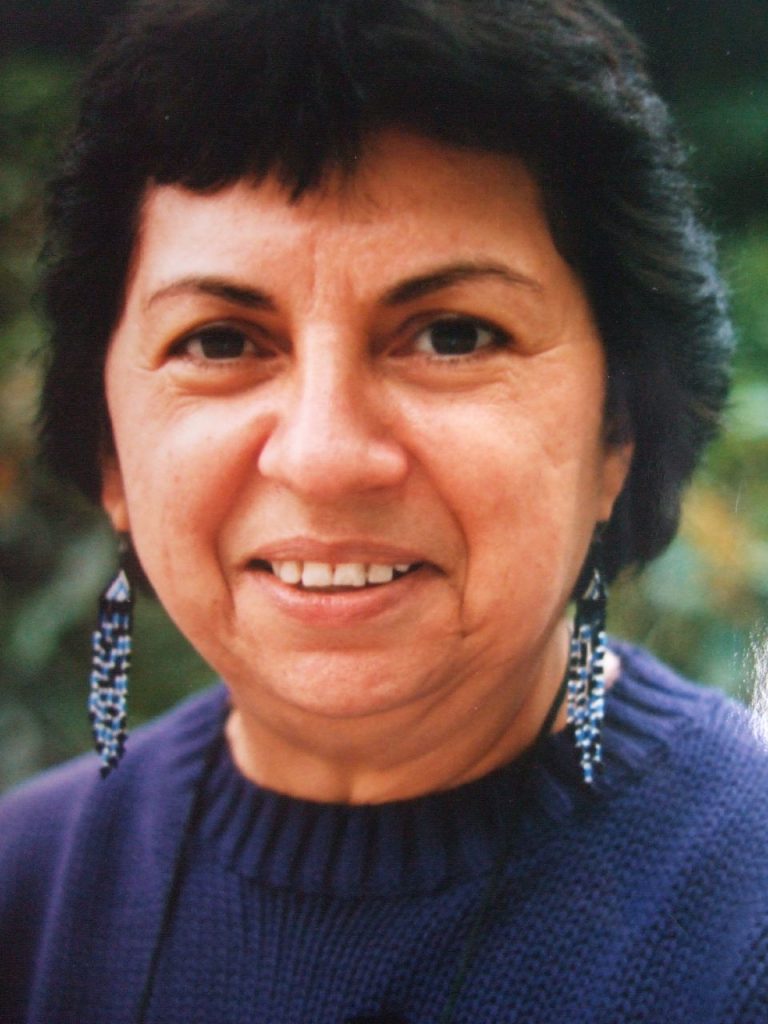
Due to the pandemic, I met Dr. Arbino on Zoom for the first time. Luckily, as the UT campus opened, we could sit for a chat under the live oaks that twirl by the LLILAS Benson building. Despite the soft breeze and autumn sun, it is difficult not to think of credentials when talking to one of the people in charge of the Benson’s unique collections. Daniel Arbino is Head of Collection Development at the Benson and the Librarian for U.S. Latina/o Studies. He has a Ph.D. in Latin American Literatures and Cultures from the University of Minnesota, an MA in Hispanic Literature from the University of New Mexico, and an MLIS from the University of Arizona. Before spending days surrounded by rare books and their spirits, Dr. Arbino walked an academic path full of curiosity with borders and definitions. He has worked on Latin American and Caribbean interstitial spaces, establishing dialogues with Anzaldúan thought on the borderlands. However, libraries and their sense of wonder —not his interests in the Caribbean —drew him to librarianship and archival studies. A library can feel like a limitless terrain worthy of exploration, but it is evident that a librarian knows pathways rarely traveled by researchers.
I asked Arbino about his work within and around the Anzaldúa papers. He shared with me his fundamental tasks: using the collection through show-and-tells, presenting it to classes focused on Queer, Feminist, Chicanx, Latinx, or Tejana studies, among other fields; talking about the archive at conferences; buying material that is relevant and related to the papers; and nurturing similar collections like Alicia Gaspar de Alba’s. Arbino explained to me his subjacent motivations, which are, in his own words:
“To amplify voices like Anzaldúa’s, put them out there so people that identify as feminists, Chicanas, or anyone, get to know her. The archival space is typically one very dominated by heterosexual men from the middle-upper class. I have to be aware of my positionality within this, but what is so exciting about Anzaldúa is that she breaks the stereotype of the classic library. Hers is the number one viewed collection in the Benson.”
We discussed how vital Anzaldúa’s legacy is for queer women of color. Still, as we talked about issues of representation in libraries, I asked Arbino what he likes to share from the collection. I was curious about his job because sometimes librarians are unfairly seen as gatekeepers. However, I came to realize that their work is more as facilitators of dialogues and enablers of encounters with documents. To Arbino, the collection’s value resides in the many dimensions an author has beyond publishing. He has his all-time favorites: the This Bridge Called My Back call for papers, the Borderlands/La Frontera drafts, and a set of journal pages that narrate Anzaldúa’s time at UT.
“I am interested in showing people some of what they already know, but also things they did not know that existed, like her science fiction writings. I also want people to see the side of her that is not limited to being a writer. The personal journal pages are so valuable because there she explains her feelings of not fitting in. I think it is very powerful for people to know it is okay to feel uncomfortable in your own skin.”
Indeed, it is comforting to know that Anzaldúa once felt like many of us in a new city, adjusting to a foreign language and navigating the intricacies of our identities and how they unravel when encountering others.
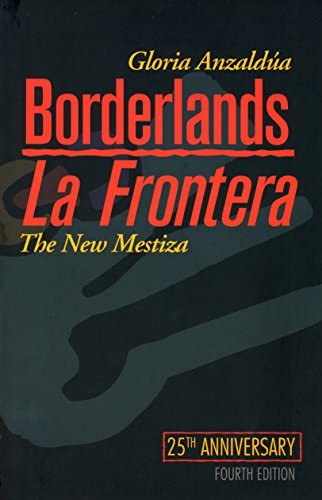
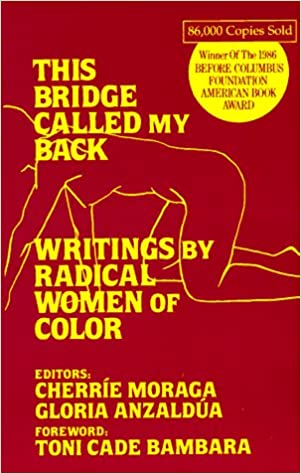
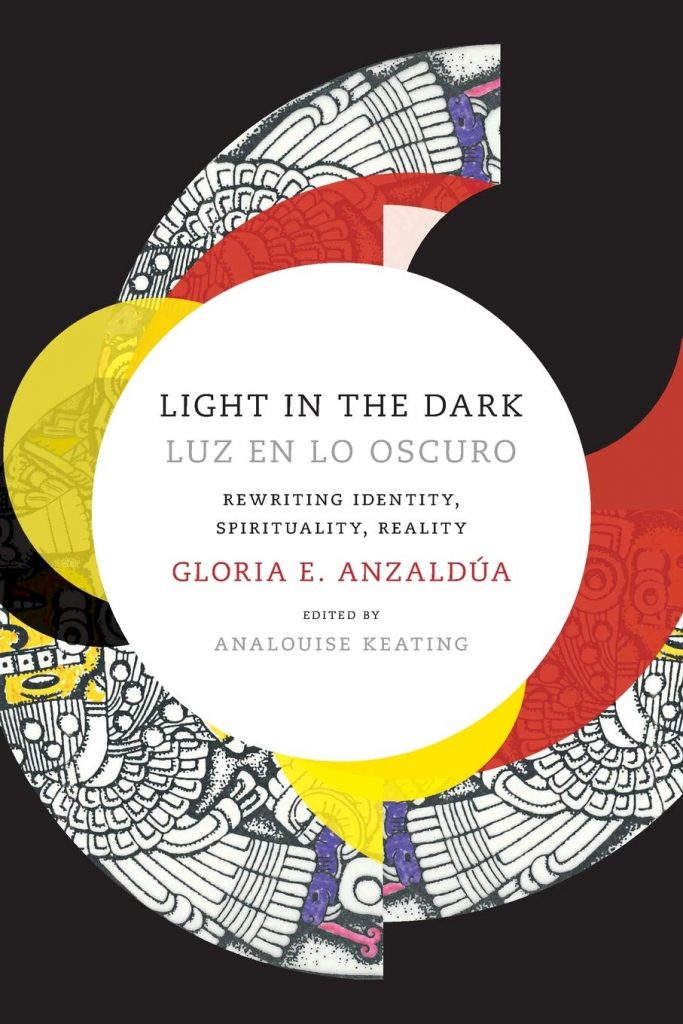
Getting in touch with Anzaldúa’s intimacy expands and incarnates her reflections on identity, what it means to be a nepantlera: someone who dwells in the borderlands of experience. Although her publications have been essential for how many of us have learned to inhabit ourselves, Arbino says:
“There is something striking in being able to smell her papers, for instance, being able to know that you’re touching what she touched, that these side notes are hers. It is a privilege, an honor. It builds a connection that you cannot quite explain. You feel like she is right there by your side. You develop a greater sense of compassion, of empathy. Archival collections offer a great understanding of who people are beyond their publications.”
That sense of compassion Arbino addresses speaks deeply to Anzaldúa’s reflection on the self and acts of healing. Beyond the geographical and cultural iterations of her mestizaje theories, the ability to connect with the self and others through spiritual expansion and acknowledgment of our multiple facets is at the heart of her work. It is also what lies deep inside the life she lived and her collection.
Archives allow us to deconstruct the fixed ideas we have of an author. For us, touching Anzaldua’s intimate documents brings us closer to broader definitions of being human. Sharing with Arbino confirmed this to me.
“In American culture, anytime you meet someone, you introduce yourself, and almost the first question is: And what do you do? And you’re going to say, ‘well, I’m a librarian, I’m a Ph.D. student,’ whatever… Immediately, we become defined by our work. I think Anzaldúa pushes us to move beyond that way of thinking. She pushes us to know that we are so much more than the 40 hours a week we spend at a job.”
One could say many things about what Arbino does and has achieved. How he honors the legacy of authors that challenge master narratives, or how he is committed to making visible transformative voices like Anzaldúa’s, so young queer women of color know that being is not limited to doing nor defined by it. However, I don’t think this was the extent of what we shared under the live oaks, as I know I am not merely a Ph.D. student, and he is not only defined by his academic credentials. Since I am interested in feeling through what Gloria Anzaldúa has given to the world, I marvel at cosmic interconnectedness and surrender to the flow of time that made my conversation with Arbino possible. Our encounter speaks of how expansive being is, how it goes beyond the things we do, and the ideas of self we cling to.
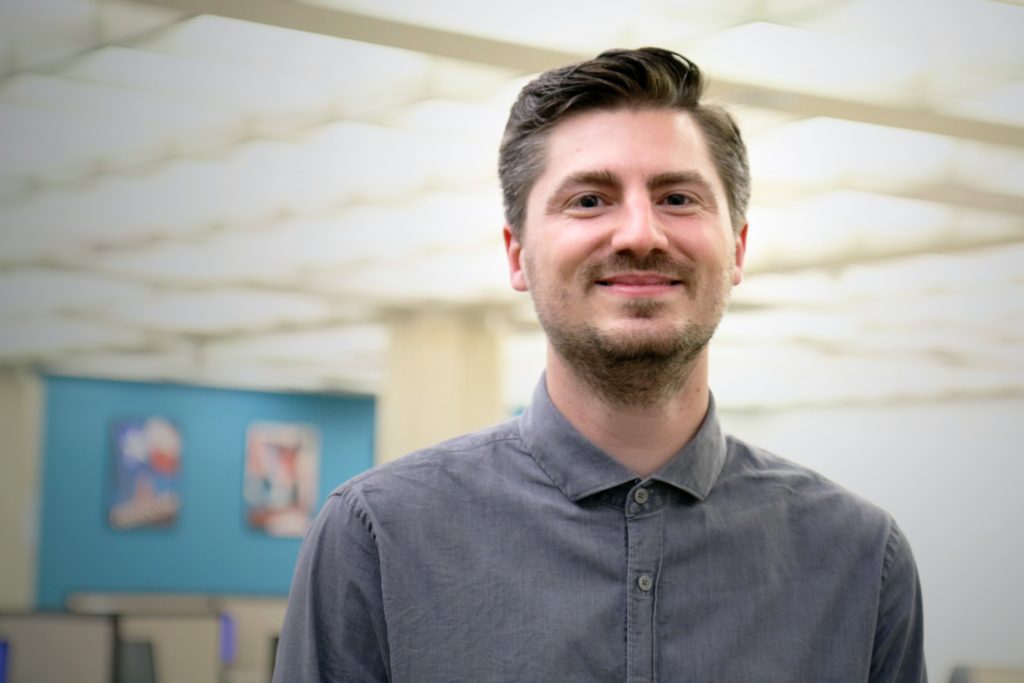
In Borderlands, Anzaldúa explores Nepantla as a liminal space where the self is contested. Nepantla speaks of in-betweenness, crossing, and identity rupture. These processes are essential for understanding how we are all interconnected, which makes Nepantla the primal ground for expansion. Along these lines, Anzaldúa refers to queer people as the supreme crossers of cultures. She states that “our role is to link people with each other (…) to transfer ideas and information from one culture to another” (p.107, 1987). Among the contributions she has offered us, her legacy and archive constitute a limitless space for encounter and transformation. Encountering Anzaldúa’s life through her papers is a way of inhabiting Nepantla. Both Arbino and I are amazed by how the work of a librarian like him serves this purpose. I am sure Anzaldúa’s timeless faculty of connecting people brought us together in this dialogue, and I hope that sharing it with you convinces you to get closer to Arbino’s work and the Anzaldúa papers. His participation as a panelist at the Lozano Long conference will be a good place to start.
Dr. Arbino will participate in the panel “(Re)conociendo community rights through archives and memory” of the 2022 Lozano Long Conference. This discussion explores the pursuing and claiming of rights by several communities gathering historical material. The conference will be held in a hybrid format, allowing participants to attend regardless of their location.
Ana López H (they/she) is a poet and interdisciplinary researcher from Bogotá, Colombia. They studied Literary Studies at the Pontificia Universidad Javeriana in Bogotá, and then completed a master’s degree in European, Latin American, and Comparative Literatures and Cultures at the University of Cambridge. They are currently a doctoral student at LLILAS, where they research dynamics of domestic work and affects in Colombia from a feminist and decolonial perspective. Their first poetry book Aquí donde tiemblo was published by Sincronía casa editorial in 2021. They are part of Como la Flor, an anthology of Colombian cuir (queer) contemporary poetry published by Editorial Planeta; and Cielo Desnudo, a digital compilation of contemporary Latin American poetry. They have also published poems in magazines such as Río Grande Review, and Círculo de Poesía, among others.
Works Cited
Anzaldúa, Gloria. Borderlands: The New Mestiza = La Frontera. San Francisco: Spinsters/Aunt Lute, 1987.


